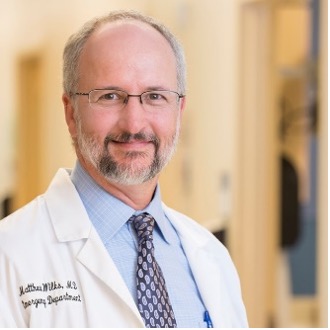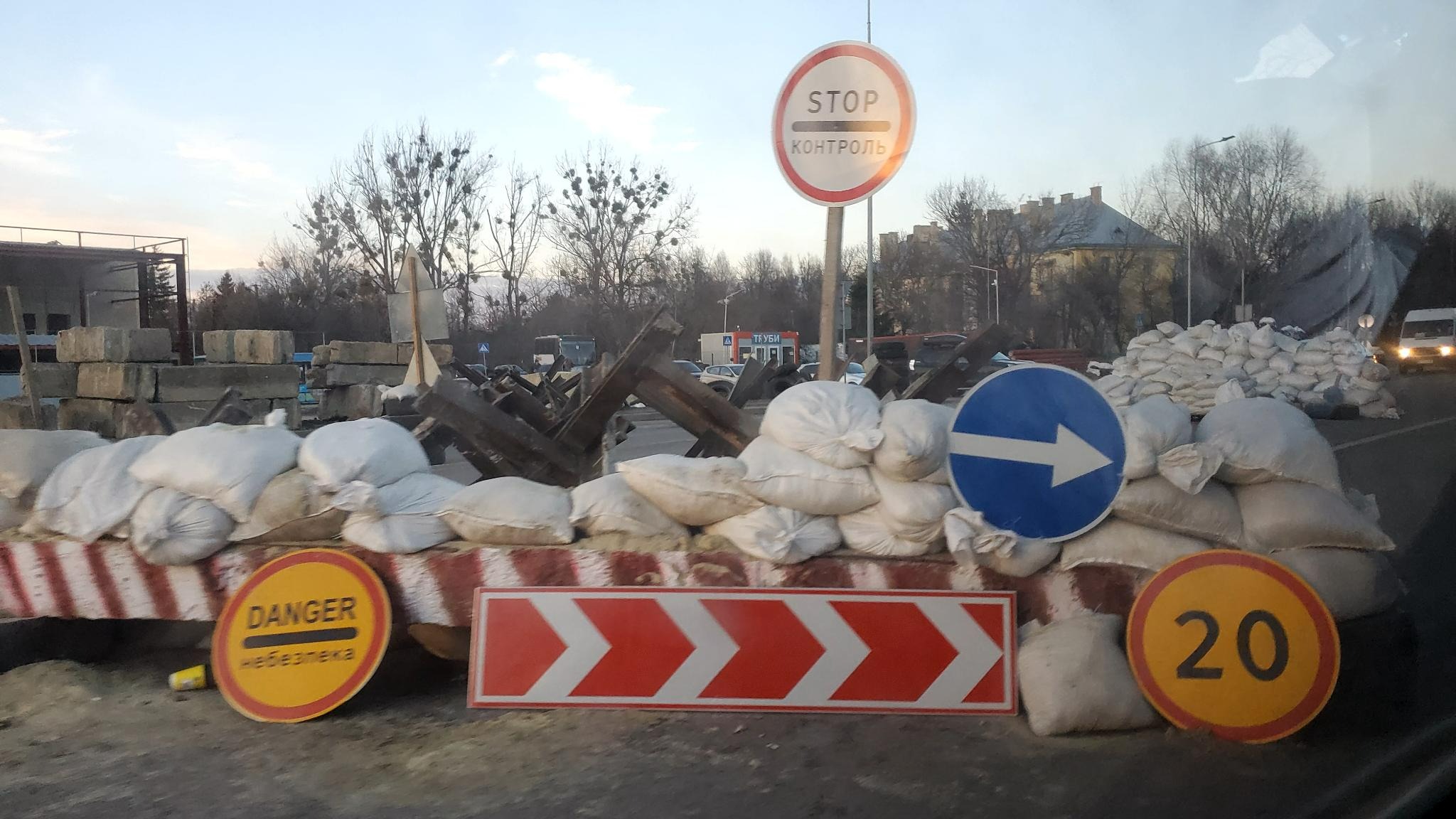More than two million people have fled the Russian invasion of Ukraine over the past two weeks, pouring into neighboring central European countries.
University of New Mexico physician Matthew Wilks, chief medical officer and chief quality officer at Sandoval Regional Medical Center in Rio Rancho, has headed in the opposite direction, crossing into Ukraine to establish aid stations manned by volunteer health providers.
Wilks belongs to Team Rubicon, an international disaster relief organization. Days after Russia launched its invasion on Feb. 23 Wilks was on a plane bound for Poland, which has accepted more Ukrainian refugees than any other country.
“Although Poland has taken more than one million refugees from Ukraine, it has done an amazing job of providing for the needs of these displaced people,” Wilks wrote in a March 8 email. “They are provided free health care and families have taken them in without hesitation. Within minutes of crossing the border the refugees are given a place to warm up and free hot food and groceries, and they are being welcomed with open arms.”
Wilks spent his first week in Poland meeting with UN and World Health Organization officials and local doctors while attempting to meet with the Polish minister of health. “He wouldn't take my calls,” he wrote. “Today, I transitioned to Ukraine.”
On the Ukrainian side people are taking trains, cars – any mode of transportation they can find – to get to the border, Wilks wrote. “Many are walking dozens of miles carrying their possessions. I found it interesting that many of them were carrying their cats. The line that I passed on the Ukrainian side today was five to six people wide and stretched for several miles.”
The refugees are waiting several days to cross the border once they reach it, he wrote. “My journey today was a quarter-mile walk. There was no one else in the line in front of me and the Polish border patrol asked me why I wanted to go into Ukraine. She told me I was crazy.”
On the Ukrainian side, the border patrol officer made him wait for about an hour and a half before deciding to allow him through. “It's unclear why she had me stand to the side and wait,” Wilks wrote. “I am now making preparations for the rest of the team to arrive on Friday."

We will be setting up aid stations at the border crossings on the Ukrainian side and walking the line of pedestrians, assessing and treating their needs
When the rest of the Team Rubicon volunteers arrive, “we will be setting up aid stations at the border crossings on the Ukrainian side and walking the line of pedestrians, assessing and treating their needs,” he wrote. “We have included child psych professionals to help the kids cope with this humanitarian tragedy.”
Wilks, an associate professor in the UNM Department of Emergency Medicine who has spent 10 years at SRMC, is no stranger to providing medical care in precarious circumstances.
Last August he joined a Team Rubicon team in Haiti to help people following a severe earthquake, and in 2019 he deployed to Mozambique after a powerful tropical cyclone roared ashore from the Indian Ocean, killing more than 1,000 and triggered massive flooding across the sprawling southeast African country.
In November 2017 Wilks flew to Puerto Rico after Hurricane Maria raked across the island. There, he and other medical volunteers shouldered backpacks to venture into areas that were cut off by damaged roads and bridges. Many local physicians had fled ahead of the storm and their patients were desperate.
Team Rubicon was launched in 2010 when a pair of ex-U.S. Marines headed off to Haiti after a powerful 7.0 magnitude earthquake rocked the country, killing more than 100,000 people. In the disaster’s aftermath, they saw the need to recruit skilled volunteers capable of venturing into remote areas under dangerous conditions to provide emergency services. The organization has since grown to include 140,000 volunteers.
Now, Wilks finds himself 5,800 miles from home, ready once more to assist people in desperate need in the face of an unfolding tragedy.
“I am safe,” he wrote, “and I am witness to the atrocities of Putin and his enablers.”
